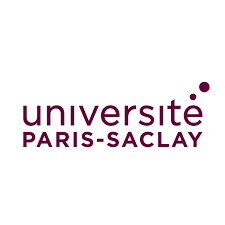-
Energy, Ecology, Environment
-
Quality of life - Health - Food
I2BC / Département Microbiologie
Research team
The Microbiology Department is part of the Institute for Integrative Cell Biology (I2BC). The different groups in the department work mainly on these three themes:
- microbial metabolism
- envelope of micro-organisms
- interactions of microbes with their hosts and the environment.
Through these themes, there are many organisms that are studied (bacteria, archaea, viruses), from very diverse biotopes (soils, water, extreme environments, human microbiomes, animals, plants).
The teams are particularly involved in the development of economic and societal applications (health, environment, bioenergy).
- Mr Jean-Luc PERNODET
Innovation themes
Lab of attachment
Avenue de la Terrasse
Bâtiment 21
91190 GIF-SUR-YVETTE
Expertises
- endotoxins, structures and responses of the host
- biology and biotechnologies of cyanobacteria (bio-fuels and detection of metal pollutants)
- genomics and microbial biodiversity of biofilms
- plant-bacteria interactions: ecological impact of genetically modified plants, biological control ...
- enzymology and non-ribosomal peptide biosynthesis
- bacterial envelopes and antibiotics
- cellular biology of archaea
- bacterial adaptation to environmental changes
- molecular microbiology of actinomycetes
- genetic infection, evolution of emerging pathogens
- Regulatory RNAs in Clostridia
- energetic metabolism of Streptomyces
Applications sectors
- Biotechnology
- Other business
- Energy
Total number of employees
Number of researchers : 66
Equipment(s) open to collaboration
- anaerobic chamber for the study of archaea
- Beads4Med platform: direct determination of the genotype of bacteria responsible for tuberculosis, salmonellosis, legionella
Keywords
- Mycobacterium
- Corynebacterium
- outer membrane
- mycolic acids
- endotoxins
- septic shock
- whooping cough
- immunology
- vaccines
- bacterial infections
- lipopolysaccharides
- cyanobacteria
- biofuels
- metallic pollutants
- biofilms
- environment
- bacteriophages
- metagenomics
- GMOs
- biocontrol
- symbiosis
- rhizosphere
- antibiotic
- bacterial envelope
- enzymes
- bacterial metabolism
- peptides
- biosynthesis
- archaea
- genomics
- bioinformatics
- biochemistry
- photosynthesis
- oxygen
- metal stress
- streptomyces
- sporulation
- tuberculosis
- epidemiology
- emerging diseases
- fatty acids
Valuation offer
- model organisms Corynebacterium glutamicum and Mycobacterium smegmatis
- data mining methods
Databases and software:
- genomic sequences of ~ 3000 prokaryotic organisms
- BAGET: sequence and immediate environment of any gene from these organisms http://archaea.u-psud.fr/Baget_help.html.
- FITBAR: prediction of regulars at the level of a complete genome http://archaea.u-psud.fr/fitbar/.
- ABSYNTE: analysis of gene conservation (synteny) of microorganisms http://archaea.u-psud.fr/absynte/.
- SYNTTAX: analysis of synteny according to the taxonomic classification of species http://archaea.u-psud.fr/synttax/.
Projects examples
- plant protection by biocontrol agents
- development of new multiparametric methods for CRISPR typing and detection of antibiotic resistance mutations on optical and electrochemical micro and nanotechnology chips
- Data mining and Automated learning on CRISPR data from Mycobacterium tuberculosis and Salmonella enterica
Establishments of affiliation

